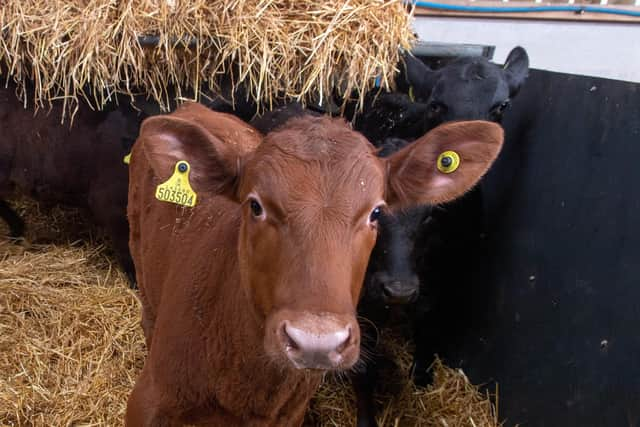Scotland farming body backs UK decision to suspend trade talks with Canada as negotiations stall over beef and cheese
The UK and Canada have suspended trade negotiations, as talks collapsed over disagreements on beef and cheese.
The Canadians had been pushing the Government to relax a ban on hormone-treated beef, a sticking point for negotiators. But the decision to walk away from talks could leave British trading terms with Canada worse off.
Advertisement
Hide AdAdvertisement
Hide AdHowever, the decision not to strike a deal was applauded by the National Farmers’ Union Scotland, with body president Martin Kennedy saying it “must mark a permanent change in attitude from the Government”.


“Until now, the government’s track record on post-Brexit free trade agreements to date is one of failure,” he said. “It failed to protect Scottish farming interests, failed to properly engage with stakeholders and failed to provide Parliament with proper scrutiny on such deals once agreed.”
Mr Kennedy added: “This robust approach on a Canadian deal is something that both Defra and the Department for International Trade must permanently adopt in the future.”
The two nations have been negotiating for the past two years after Britain left the European Union, with trade continuing largely under the same deal originally brokered when the UK was a member of the bloc.
A time-limited side agreement had been in place protecting cheese and cars from higher tariffs, but protections for the former had expired at the end of December leaving British producers facing higher duties of 245 per cent. British car firms could see higher tariffs from April on exports, when an agreement is due to expire.
The breakdown of talks has sparked worries among business groups, while Labour called it “very concerning” and criticised the government’s handling of post-Brexit trade negotiations.
Downing Street on Friday said the government remained open to restarting talks, but only if terms were favourable.
“We will only negotiate deals that deliver for the British people, and that we reserve the right to pause negotiations where progress is not being made. We’re open to restarting talks with Canada in the future,” a spokeswoman for the Prime Minister said.
Advertisement
Hide AdAdvertisement
Hide AdBut the British Chambers of Commerce said the suspension of talks was “unwelcome news”.
William Bain, its trade policy head, said: “For our dairy exporters and parts of our manufacturing industry, the loss of key trade preferences puts them in a worse position than before 2020. Government must help these sectors through difficult times and open up new markets for our goods and services.”
Mike Hawes, the chief executive of automotive body SMMT, said it was “especially disappointing and sends a signal that the UK’s world-class automotive products are not welcome in Canada”.
Both sides appeared unhappy at the failure to come to an agreement. A UK Government source said Canada appeared to have “lost sight of the bigger picture – the British and Canadian businesses who do £26 billion worth of trade a year and the people they employ”.
The source added: “If Canada come back to table with a serious offer and desire to make progress we’re all ears, but in the meantime we’re going to focus on other trade deals.”
Canada’s trade minister Mary Ng said the Canadian “government will never agree to a deal that isn’t good for our workers, farmers and businesses”.
Comments
Want to join the conversation? Please or to comment on this article.